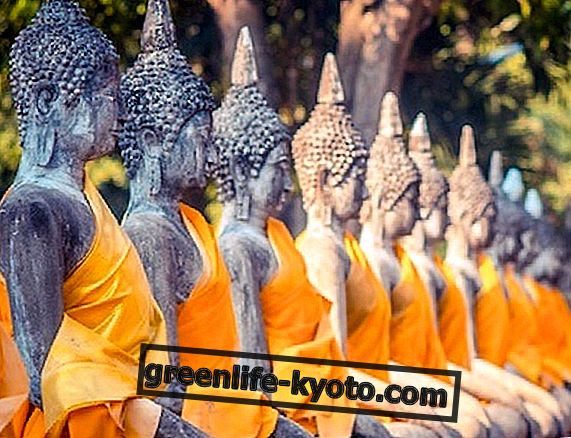
A brief excursus on vegetarianism in various countries, from Asia to Europe, and on the relationship with philosophies, religions and the various existing movements.
Vegetarianism in Asia
Let's start from the Asian continent, where vegetarianism is a precept still respected and considered. In Hindu religion, as in some of its specific disciplines such as yoga and ayurveda, vegetarianism is highly regarded.
The same thing happens in many forms of Buddhism (in which we find the precept of not killing men and animals), and in Jainism (where it is even mandatory). In these religions vegetarianism is recommended even in the sacred texts, while in other religions such as Sikhism and Bahai, it is more simply a practice favored and well seen.
This is mainly due to two fundamental ideas: the first, very dear to Gandhi, is the " ahimsa " or principle of non-violence, a compassionate practice of avoiding suffering whenever possible, a principle that when pushed to the maximum, leads to veganism ; the other principle is known in the West as reincarnation : in popular culture it is believed that the soul of some human being can be located in the body of some animal that we are going to slaughter.
In some sacred texts the slaughter and sacrifice of animals are severely condemned and considered a cause of karma. In jainism even, all parts of the plant that lead to its death are avoided : therefore no tuber or root is consumed.
Orthodox practitioners of hatha yoga are vegetarians and even the bhakti practice of offering food to the gods ( Prasad ) is often linked to vegetarian food (Krishna, for example, only accepts vegetarian food).
It is believed that meat also negatively influences the human character, pushing it towards passion ( raja ) and indolence ( tamas ). The followers of Taoism follow the "simple eating", which often coincides with a vegetarian diet.
A balanced vegetarian diet: how to do it?
Vegetarianism in Europe and the Middle East
What accede to the Semitic religions generally closer to us? Let's start from the fact that, according to the Scriptures, in the Garden of Eden all beings, including the human, were vegans.
In Genesis it is clearly stated that God provided man with every plant and seed to be his food. However the orthodox Jewish point of view does not look favorably on what are called ascetic practices (even if the Essene sect was vegan) and invites us to enjoy the opulence of the world by affirming that, although the initial divine plan foresaw veganism, the Lord he granted man the consumption of the flesh; not for nothing Moses was a master in the art of bleeding and slaughter.
In the Christian tradition, although it is not very well known, there are many cases of vegetarian branches; it is enough to mention the Benedictines, the Trappists, the Seventh-day Adventists, the Cistercians, the desert fathers, and other minor sects that foresee and promote vegetarianism. This background link between Christianity and vegetarianism and veganism, often maintained in esoteric Christianity and in some forms considered heretical as the Cathars, derives from the Essene root at the base of Christianity : the Essenes were firmly vegetarian and led a pure lifestyle .
Islam has only very few irrelevant internal currents that promote vegetarianism . The Parsis, or Zoroastrians, enact a respectful and kind behavior towards all forms of life and its sacred writings consider vegetarianism, and moreover veganism, a basic condition of humanity of the future.
Vegetarianism in other parts of the world
In tribal religions, among shamanic peoples, in animist culture and more generally in the ancient past, the consumption of meat was and is more symbolic than a necessity, except in cases of mountain or desert life where it would be really impossible to live without support some meat.
Already in the ancient Greece of philosophers, elegant discussions were carried out in favor of vegetarianism, considered a particularly virtuous behavior, therefore followed by various philosophers, first of all Pythagoras, who made it a basic precept to be members of his Pythagorean sect in Sicily .
Also read:













